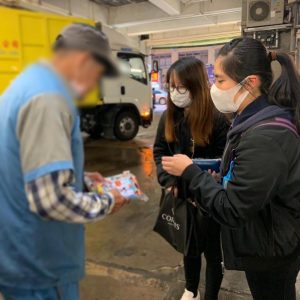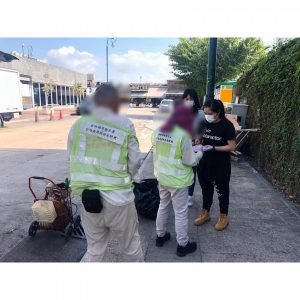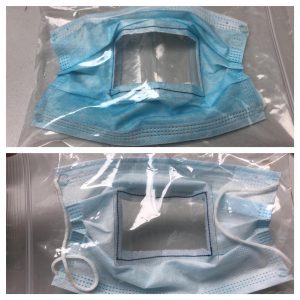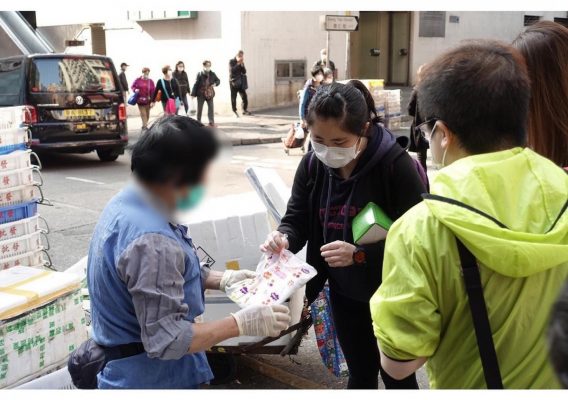
“Two boxes, thanks!” was a familiar phrase in 2020 when people found masks available for sale online, and they would leave comments to purchase them. Amid the scarcity of masks, many people still donated masks to the needy. Former student union president and alumnus of the HKFYG, Lok-chi Tsang was no exception. In addition to organizing friends to collect epidemic prevention supplies, she also developed a new type of mask to facilitate lip-reading communication for the hearing-impaired, showing care for the neglected group.
In 2009, during her term as the school’s student union president, Lok-chi participated in leadership training programs organised by the HKFYG, including the “Hong Kong 200″ leadership program. After graduating from university, she joined the government to serve the public. She always remembered the principle of ” Unity of knowledge and action” taught in the project and actively engaged in social services during her spare time. She said, “Most of the participants have backgrounds in leadership training or volunteer service. We share the same aspirations and are dedicated to serving society.”

During the outbreak of the COVID-19 pandemic, the city went into a frenzy to purchase masks, and the atmosphere of epidemic prevention became tense. Many netizens criticized people who were not wearing masks and loitering in the streets, intensifying social conflicts. Lok-Chi noticed that many vulnerable communities were unable to afford masks, so she crowdfunded epidemic prevention supplies from her friends and shared them with those in need.
Lok-chi said, “Once, when a masked cleaner received the new masks we provided, I noticed that her mask was already worn out with lint, indicating that she had been using it for two weeks. Have we ever considered that those who don’t wear masks may have their reasons?” She also noticed that common surgical masks cover the mouth, hindering lip-reading or the identification of lip movements for the hearing-impaired.

Later, she learned about a new type of mask from abroad that had a transparent area around the mouth to facilitate communication for the hearing-impaired, but it was expensive. So she researched a more affordable method to “replicate” this feature in masks, providing protection and “silent care” for people with disabilities.
At that time, many users responded well to the new design of the mask, but some were concerned that it deviated from the norm and might lead to discrimination, making them hesitant to use it. Lok-Chi hopes that besides raising public awareness of public health during the pandemic, people can also learn to be considerate and respectful of others. “If you see someone not wearing a mask on the street, you can first show concern and then offer assistance based on their situation, building an inclusive society.” She emphasized that the COVID-19 pandemic is not an individual competition, and only by working together can we overcome it.


